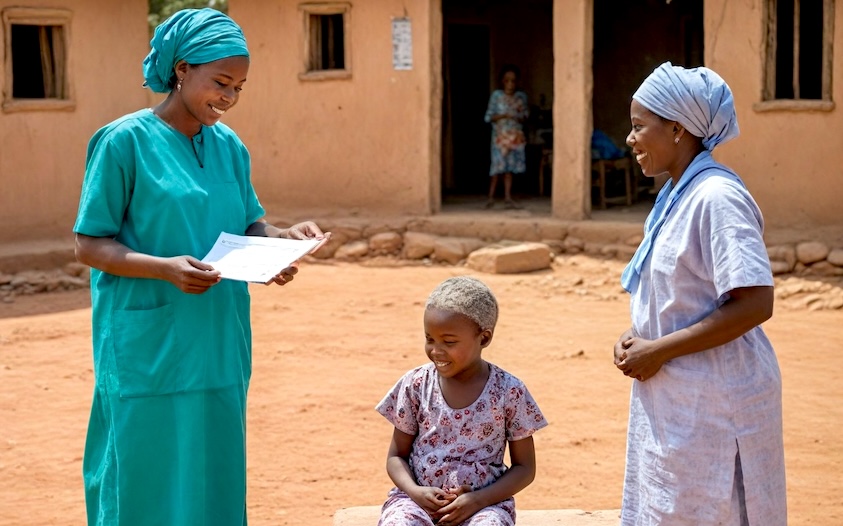Niger’s INAM, created in 2022, promotes free health care and health financing reform to achieve universal health coverage. Supported by the CSU Leadership Group, it operationalizes the policy of free healthcare with increased funding, aimed at reducing inequalities in access to care.
Niger’s health performance is fragile and slow to improve. With 52.68% geographical health coverage37% access to essential healthcare, 43.68% of healthcare expenditure borne by households and 6.5% of them exposed to catastrophic healthcare costs every year, universal health coverage (UHC) remains a distant prospect.
Behind these figures lie major inequalities : a child under the age of five from a family in the poorest quintile of the population is twice as likely to die before the age of five than a child from the richest quintile. The same applies to prenatal care, to which underprivileged women have half as much access as those from wealthier backgrounds. The latter are more than three times more likely than the former to benefit from qualified childbirth assistance. The prevalence of contraception is even more discriminating, with the richest 20% of women using it five times more often than the poorest.
Operationalizing the free service, a preferred option for moving towards the CSU
To meet these challenges, Niger has adopted a CSU strategy. This has fed into the new Health and Social Development Plan and is at the heart of the health financing strategy.
A first milestone in these strategies is to make effective the policy of free healthcare decreed in 2006, which aims to provide, without financial compensation, care for children under five, family planning services, prenatal consultations and dystocic deliveries.
This free healthcare, which should benefit more than a quarter of Niger’s population, remains a right that needs to be made effective. Its deployment has suffered from implementation problems, notably under-funding and weak verification of benefits required prior to reimbursement.
INAM is a key structure for free healthcare and healthcare financing reform
To achieve this goal, in 2022 the State of Niger created the Institut national d’assistance médicale (INAM). This public administrative establishment is developing a strategic purchasing approach to ensure free healthcare, and ultimately a contributory health insurance system.
This creation was accompanied by the CSU Leadership Group, which brings together senior civil servants and members of civil society to accelerate the move towards the CSU. The latter continued its support to facilitate the operationalization of INAM. This was achieved through objectives set out in challenge notes sent by the General Secretariat of the Ministry of Public Health to the Director General of INAM, which were met via Collective Action Initiatives. Regular reporting to the General Secretariat and the Minister facilitated the technical and political inclusion of INAM’s issues and the operationalization of the CSU at a high level, and enabled adaptive challenges to be addressed.
INAM is now up and running, with its own budget and teams, supported by technical assistants from South-South cooperation financed by the Fonds Commun Santé. The first audits of free services were carried out in the course of 2023. Payment is made from dedicated government funds, to which partner contributions are added as part of a virtual common fund. This system should not only improve the effectiveness of free healthcare, but also contribute to the transition from a subsidy-based approach to healthcare financing to one based on activity, which will improve the financing of local structures and promote more equitable financing, in favor of the populations most at risk of exclusion from healthcare.


